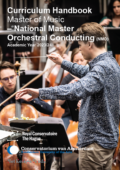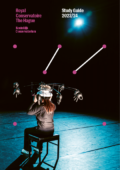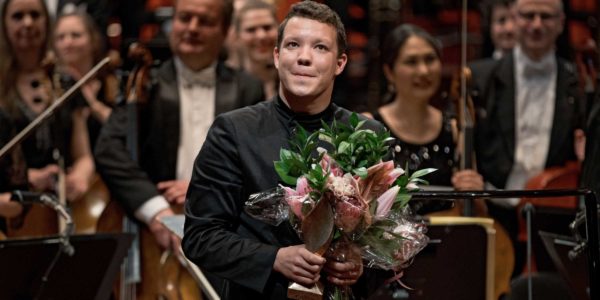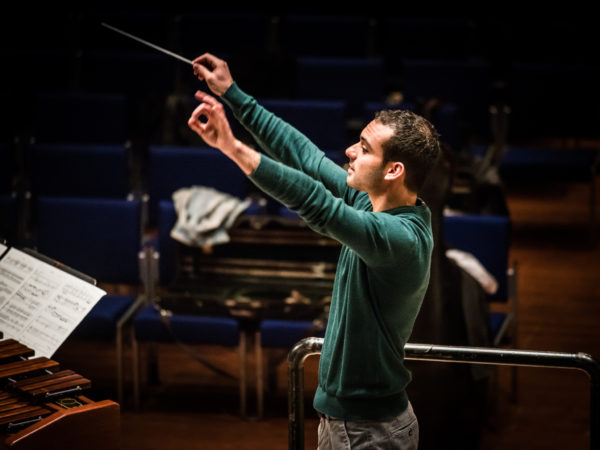Entry requirements
• bachelor’s degree in music
• a well-developed musical ear
• knowledge of the basic repertoire for symphony orchestra from 1750 to the present
• ability to master scores, also by score-playing
• ability to rehearse with a symphony orchestra, with the use of proper conducting techniques
• ability to conduct and inspire a symphony orchestra during concerts
• a pronounced personal and artistic vision
• ability to express personal views regarding the composition concert programmes
• to show potential for development
Auditions for the 2024-2025 academic year
After a selection, a number of candidates will be invited to the online interviews. A maximum of 8 candidates will be admitted to the ensemble round. A maximum of 4 candidates will be admitted to the orchestral round.
Candidates are asked to upload the following documents together with their application:
- Motivation (written)
- Biography
- Portfolio
- Research proposal
- Video of yourself conducting*
- Personal introduction video**
- Copy of diploma(s) granted
- Copy of passport
- IELTS or TOEFL language certificate***
* As part of the application for the National Master in Orchestral Conducting we ask you to upload a recent recording of yourself conducting. The recording exists of a minimum of two contrasting pieces, filmed from the players’ view of the conductor. You can upload a maximum of three conducting videos.
** Next to a recording of yourself conducting, we ask you to upload a selfie-video of maximum 5 minutes in which you introduce yourself and explain your motivation on why you are applying to the National Master in Orchestral Conducting.
*** Students from EU/EEA countries whose proficiency in English is inadequate are obliged to follow a language course. If it is found during the admission procedure that your command of English is insufficient, you will be required to follow a course and obtain a certificate of proficiency during the first year of the course.
When you are from a country outside the EU (with exception of Canada, Australia, New-Zealand, United States of America or South Africa), you must demonstrate that your level of English is sufficient to follow the course. You can demonstrate your command of English with your score on any of the following English language proficiency tests: IELTS, TOEFL, TOEIC or Cambridge English (FCE/CAE/CPE). The minimum standard is a score of 6.0 in the IELTS test or level 80 in the TOEFL.
Certificates from the Institutional TOEFL test, the TOEFL ITP test or other language proficiency tests will not be accepted.
Wednesday 15 November 2023
Closing date for application
Please apply via the online application form
Friday 1 December 2023
Announcement of the candidates invited to the online interviews
Saturday 9 or 16 December 2023
Online interviews
Monday 11 or 18 December 2023
Announcement of the candidates invited to the live auditions
Wednesday 24 January 2024
Theory Level Test****
Location: The Hague
First round with ensemble
Repertoire: to be announced in November 2023
Location: The Hague
Wednesday 24 January 2024
Final round with orchestra
Repertoire: S. Prokofiev – Classical Symphony op. 25
Location: The Hague
**** The theory level exam is a test which gives us information about your general knowledge. No one will be rejected after this test. It consists of theoretical and historical knowledge, reading and analytical ability, hearing and vocalization. The test includes score playing on the piano. In addition to this you will get sight singing exercises, with and without piano accompaniment. Also recognising chords/modulations and recognising scores.
NB. The National Master in Orchestral Conducting reserves the right to at all times make schedule changes as well as to adjust the repertoire.
If you have any questions, please contact Jaike Bakker



